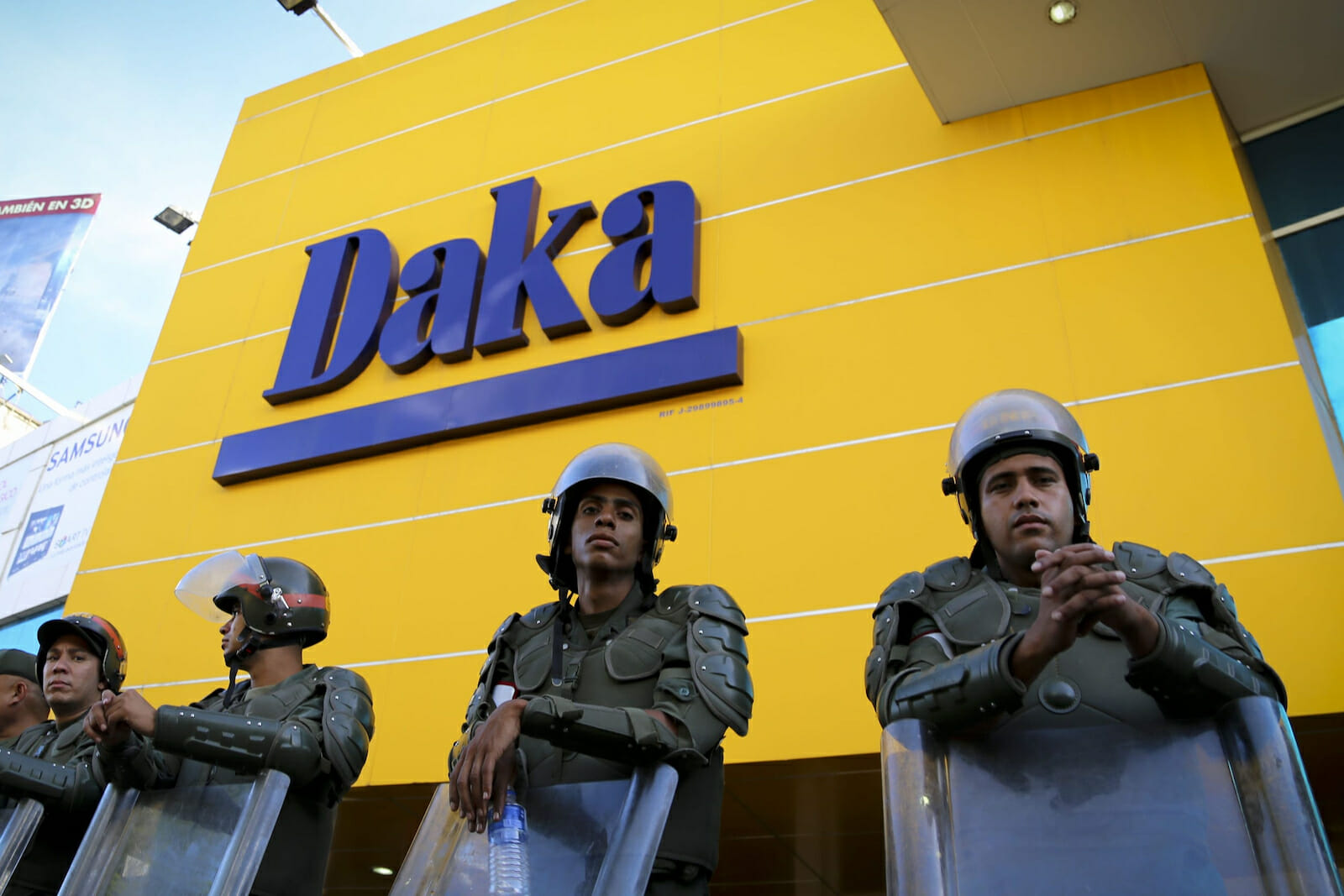
Maduro’s Economic War: The Death of Chavismo?
Ahead of the holiday season, and coincidentally just before municipal elections on December 8 of this year, Venezuelan President Nicolás Maduro has nationalized Daka, a privately owned electronics chain consisting of several stores, in a bid to further consolidate his power. Before ordering the “occupation” of the chain, Maduro said, “When the bourgeoisie feel powerful, they take from the poor to make themselves rich.” Maduro’s reasoning: the company is gouging the middle class with, in his estimate, artificially inflated prices.
Many of Maduro’s opponents would counter that Maduro’s and Hugo Chávez’s policies are to blame for runaway inflation, which currently stands at an annual rate of 54 percent. Opposition leader Henrique Capriles, who narrowly lost to Maduro in the April election to replace Chávez, tweeted, “Never in our history have we had anyone so incompetent in Miraflores,” referencing the presidential palace. “Everything Maduro does means more destruction of the economy and investor flight.”
Maduro ordered soldiers into Daka’s stores, arrested company officials and re-priced merchandize accordingly.
In keeping with the very same argument that his predecessor often made against external actors, Maduro accused foreign business interests and Washington for many of Venezuela’s problems with inflation and suggested: “the ones who have looted Venezuela are you, bourgeois parasites.”
“We’re going to comb the whole nation in the next few days. This robbery of the people has to stop,” Maduro stated to the nation. “You’ve not seen anything. This is the just the little tip of the iceberg,” he declared, suggesting that other privately owned stores would face the same fate as Daka. While Maduro might have envisioned an orderly process after the stores were seized, many of his countrymen saw it as an opportunity to loot, which was widely reported in Venezuelan media. In response to these reports, Maduro said, “I’m no looter, and neither are the Venezuelan people. Don’t fall into desperation.”
While Maduro’s holiday offensive to gin up support for his economic management might stave off criticisms for a time – while Venezuelans enjoy newly owned plasma screen televisions – Venezuela’s many problems won’t be solved. Venezuela faces food scarcity as the government under Chávez confiscated many farms and reduced food output, thereby increasing its costs for consumers. The country’s infrastructure is failing and crumbling, hard currency is scarce, corruption is rampant and crime has soared in many of the larger cities.
According to the United Nations Office on Drugs and Crime, Venezuela’s crime rate increasingly tops many indexes with one of the highest murder rate in South America. According to Venezuelan Violence Observatory (SVO), the homicide rate in 2012 was 73 per 100,000 inhabitants. According to government figures, 2012 ended with 16,073 murders, which was a 14 percent increase from 2011.
The country’s ills tend to be of Venezuela’s own making, however. “Over ninety-something percent of the kidnappings that occur…are linked to the police,” Maduro said while attending a ceremony at the presidential palace, last May. It can be expected, then, that the drug trade runs free in many parts of the country.
While not a producer of drugs, Venezuela’s location is a prime conduit for drugs making their way to the United States and Europe. Per a report from the White House, Venezuela, along with Bolivia and Myanmar, was singled out for its failure to combat international drug trafficking under international agreements. “I hereby designate Bolivia, Burma, and Venezuela as countries that have failed demonstrably during the previous 12 months to make substantial efforts to adhere to their obligations under international counternarcotics agreements,” President Barack Obama stated in the report.
Maduro faces a particularly problematic time as president. He lacks the popularity and strengths of Chávez, having barely won in April against Capriles. With municipal elections on December 8 fast approaching, he might start relying increasingly on Chávez-style tactics to consolidate power; an action that would have been more viable prior to his declaration of ‘economic war,’ as dissent continues to rise within his party’s ranks.
However one slices it, socialism as a government style might come to a needed end should Maduro fail to right the sinking ship that is Venezuela. His self-serving tactics to gain political support are slowly eroding the practicality of Chavismo, as a political construct. If going by Maduro’s own words Venezuelans might witness more and more nationalization schemes, “You’ve not seen anything. This is the just the little tip of the iceberg.”

